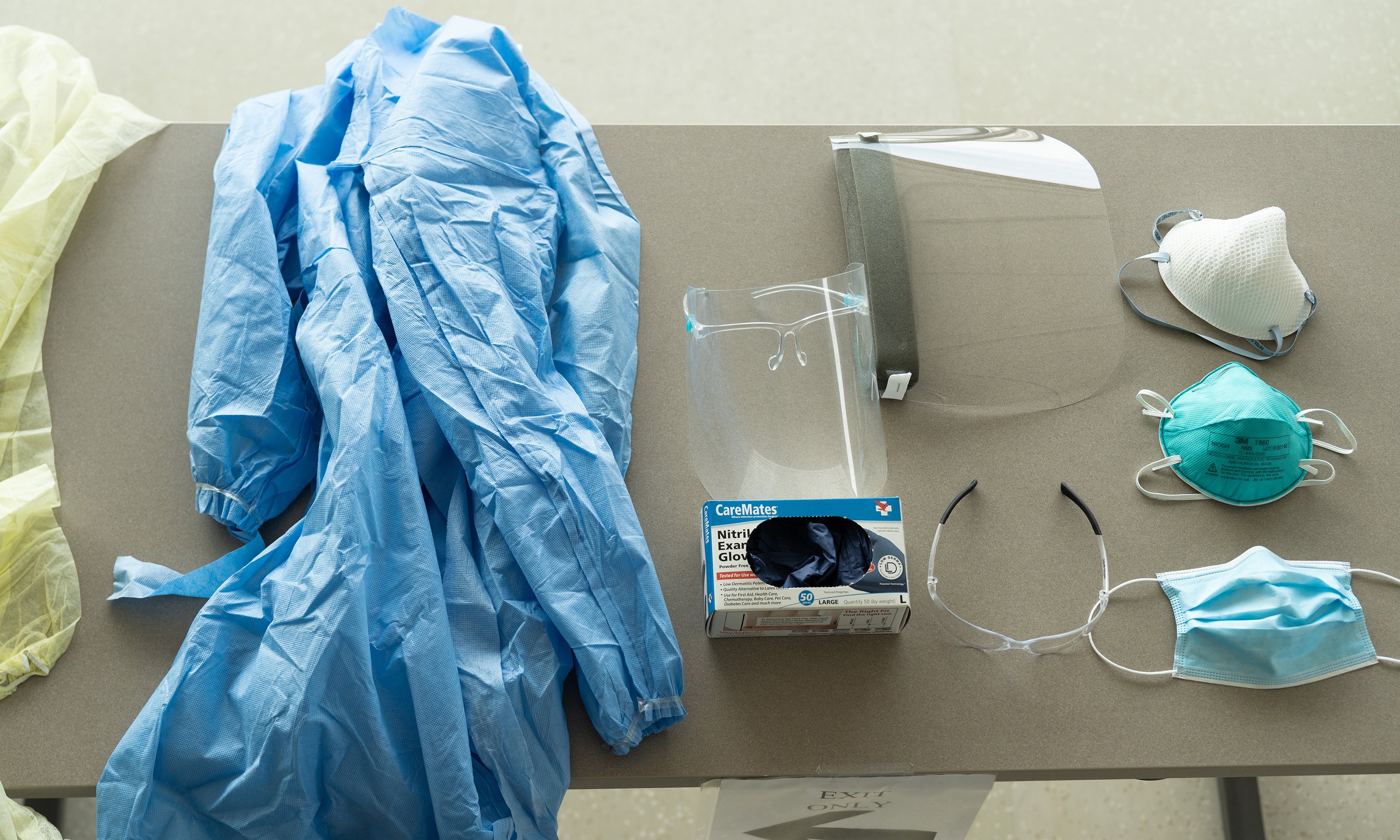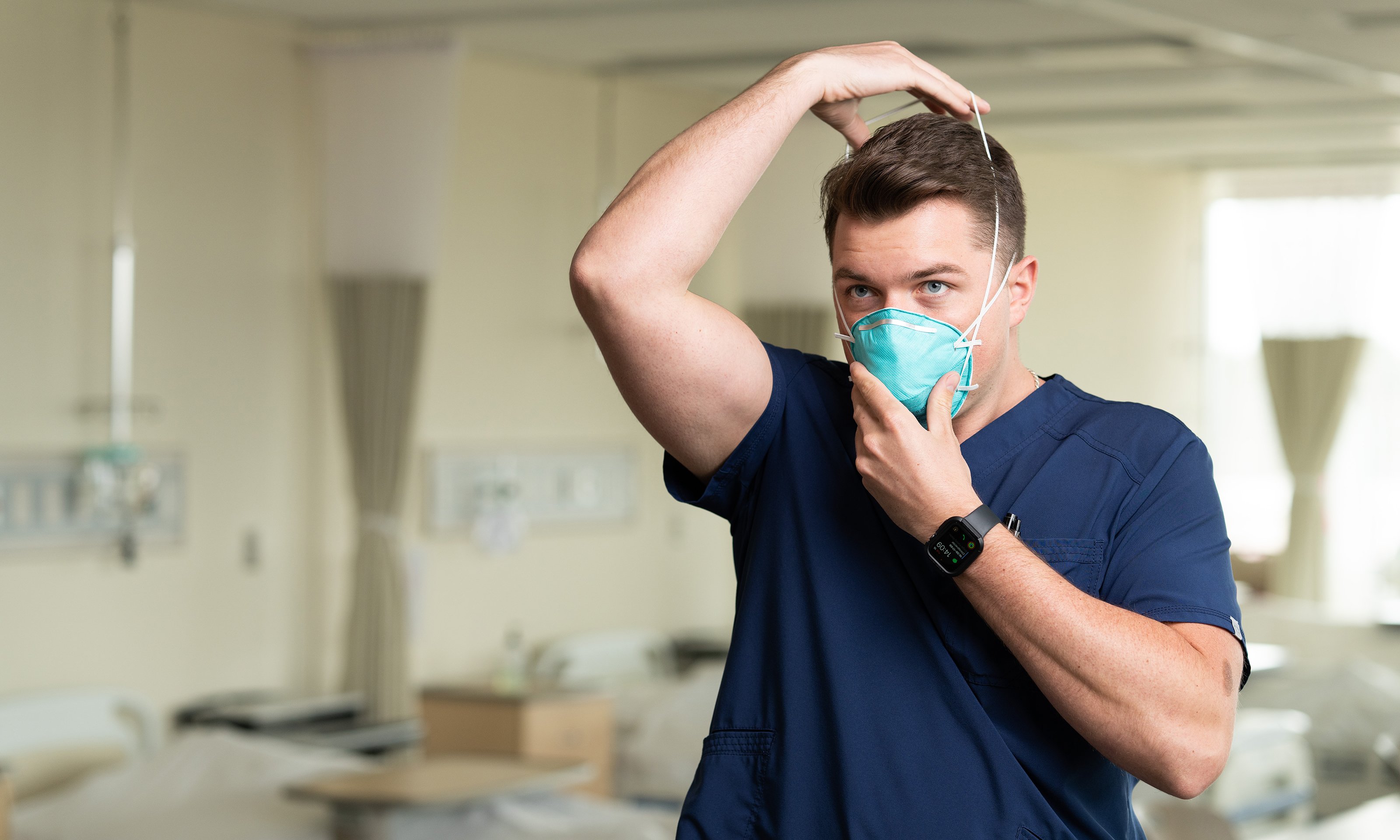Tyler Sirut, SON ’19, a nurse in the emergency department at Detroit Medical Center, remembers hearing about COVID-19 early on, but he, like many others, never thought it
would reach the states.
“I was in Florida with my grandparents watching the news and seeing China building the specialized hospitals,” says Sirut. “I immediately thought, ‘this is never going to make it to America, but I feel terrible for them.’ Little did I know that two months later we’d be in a full-blown pandemic.”
In an instant, the world was flipped on its head. Overnight, Michigan was put in lockdown, shelves at the grocery store were barren, while toilet paper and paper towels became valuable commodities.
Working in downtown Detroit, Sirut found himself in a hotspot. He saw COVID-19 patients daily, donning a gown, cap, N95 mask, surgical mask over top and a face shield, for his entire 12-hour shift. Tyler lives with his family, worried that he’d bring COVID-19 home, he created a routine.







“I’d strip down to my boxers in the garage,” explains Sirut, “throw my clothes into the washer and walk immediately up to the shower before I had any interaction with anyone in the house. That was my biggest fear, passing it along to my family.”
At the university level, students were sent home, in-person classes were suspended and Zoom was now the most used application to reach students. Curriculums were tossed out and professors and instructors, like Kristen Munyan, assistant professor and interim undergraduate program director for the School of Nursing, had to adapt.
“After the initial, utter shock,” says Munyan, “I was developing the curriculum on the fly, managing a team, that initially had a big group think over the phone to develop a plan, and being as responsive as I could because the students were in crisis.”
Munyan’s team did a great job meeting with students, making sure they were doing okay academically, physically and mentally, as well as getting the students acclimated to the new class structure.
“Lectures have been the easiest thing to transition,” says Morgan McDonald, a nursing student in her last semester before graduation. “Going from in-person to virtual clinical has been hard.”
Munyan and her fellow instructors were able to find virtual simulations to allow students to get that in-person experience. “The virtual assessments allowed us to do assessments by clicking through prompts,” explains McDonald. “We still had to do everything we would in person, but virtually. The only difference was, if you messed up you got a chance to do it again.”
While virtual clinicals can’t replace the experience gained with in-person clinicals, it has benefits. “Being able to control what students saw has been a huge benefit,” says Munyan. “I can introduce students to patients with diabetes, a child with cystic fibrosis, someone who’s been abused and burn victims. I can show the whole spectrum of diagnoses creating an equitable experience.”
COVID-19 will have long lasting effects on hospital and nursing curriculum, but most will be positive, helping students and practicing professionals. One of the issues that has Munyan worried is a great flight from the profession post-pandemic.
“I am confident,” says Munyan, “that we will see PTSD at an increased rate in our workforce and my concern is whether that will impact our retention. However, nurses are resilient, they have a calling to this profession. They don’t get into it for the money; we’re inherently driven to help people.”
While retention may be a concern, some found vindication during these trying times.
“The pandemic increased my passion for my work,” says Sirut. “The days are long and tough, but I want to help people. I see people at their darkest hours and at the worst time in their lives. It’s an honor to be able to have a positive impact in the most trying times.”
Explore OU’s School of Nursing.


 May 17, 2021
May 17, 2021 By Michael Downes
By Michael Downes
